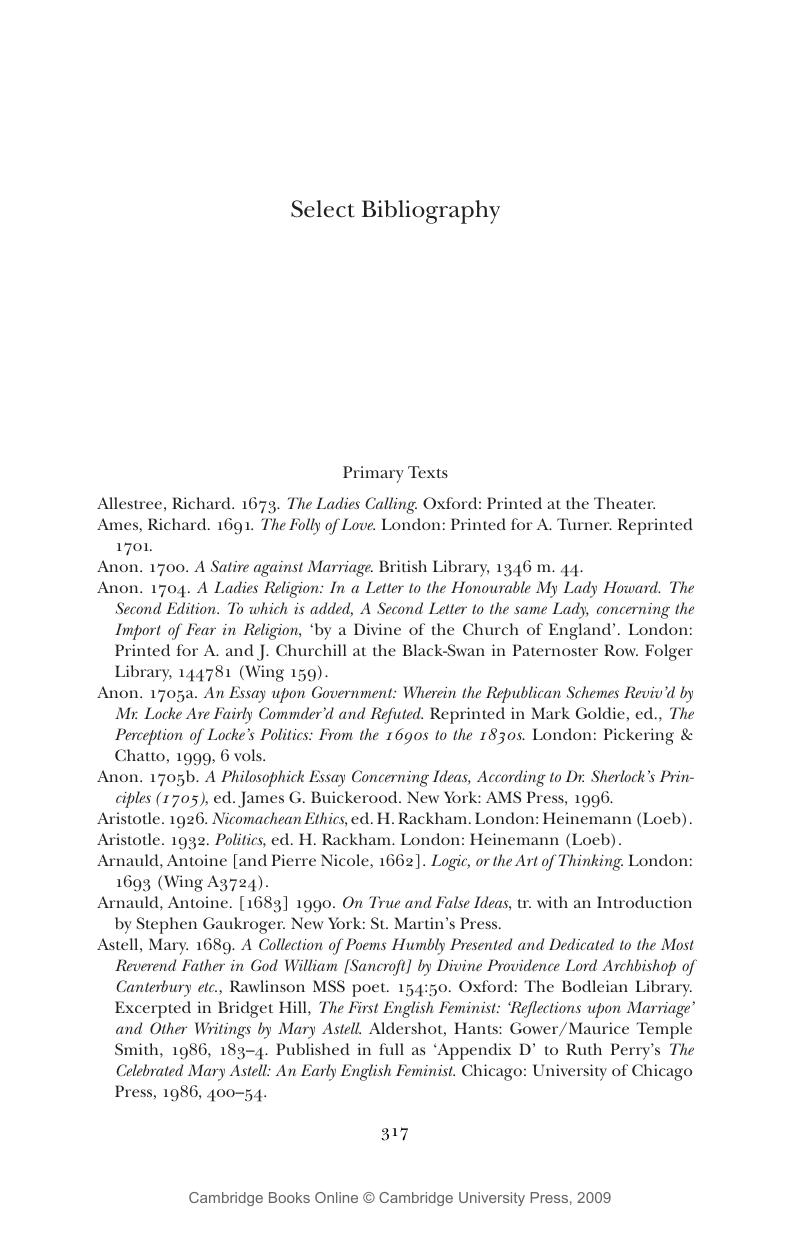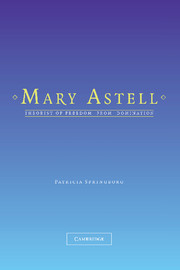Book contents
- Frontmatter
- Contents
- Acknowledgements
- Mary Astell, a Brief Chronology
- Introduction: Astell and Early Modern Feminism
- 1 Mary Astell, Philosopher, Theologian and Polemicist
- 2 Astell, Drake, Education, Epistemology and the Serious Proposal
- 3 Astell on Marriage, Patriarchalism and Contractarianism
- 4 Mary Astell and the Settlement of 1689
- 5 A Fair Way with the Dissenters and Their Patrons
- 6 Astell, Locke and the Highway Man: A Test Case
- 7 Astell, Drake and the Historical Legacy of Freedom
- Appendix: Glossary and Select Biographical Notes
- Notes
- Select Bibliography
- Index
- References
Select Bibliography
Published online by Cambridge University Press: 07 September 2009
- Frontmatter
- Contents
- Acknowledgements
- Mary Astell, a Brief Chronology
- Introduction: Astell and Early Modern Feminism
- 1 Mary Astell, Philosopher, Theologian and Polemicist
- 2 Astell, Drake, Education, Epistemology and the Serious Proposal
- 3 Astell on Marriage, Patriarchalism and Contractarianism
- 4 Mary Astell and the Settlement of 1689
- 5 A Fair Way with the Dissenters and Their Patrons
- 6 Astell, Locke and the Highway Man: A Test Case
- 7 Astell, Drake and the Historical Legacy of Freedom
- Appendix: Glossary and Select Biographical Notes
- Notes
- Select Bibliography
- Index
- References
Summary

- Type
- Chapter
- Information
- Mary AstellTheorist of Freedom from Domination, pp. 317 - 346Publisher: Cambridge University PressPrint publication year: 2005



